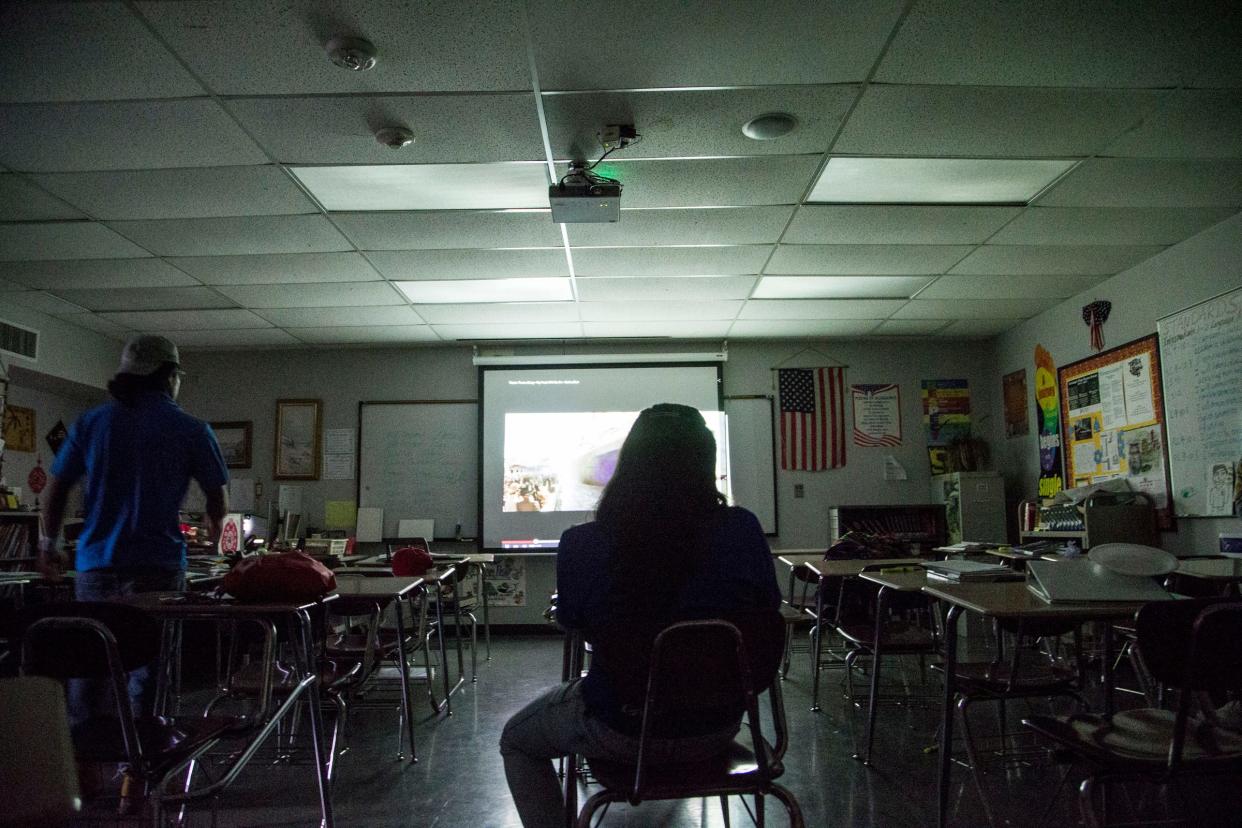Skilled foreign workers need to learn English. It shouldn't be this difficult

There is a large demand for skilled labor in Arizona, as evidenced by the addition of 15,000 jobs in just the last year.
There is also a pool of talented foreign-born Arizonans with advanced degrees and professional credentials from their native countries.
The state stands to benefit significantly by better connecting the two.
Recent steps taken by the Maricopa Community College District go a long way toward doing just that.
Learning English was needlessly complicated
Immigrants already contribute more than $175 billion annually to Arizona’s economy.
Yet ASU researchers have found that many are mismatched with jobs that do not take advantage of their skills.
That leaves 1 in 10 highly skilled multilingual workers out of the market.
This was in part because of the complicated approach to adult English education in Maricopa community colleges.
Every year, Maricopa County Community College District enrolls 3,500 adult English language learners (ELLs) seeking an education that will help them achieve the American Dream through gainful employment.
Many are talented foreign-born individuals trying to complete a language pathway so they can put their past work experience to use.
Courses took 5 years on average to finish
In the past, many adult ELLs at Maricopa community colleges have ended up trapped in a dead end. The new adult English pathway promises to change this.
There are two reasons for this.
First, the previous English as a Second Language (ESL) curriculum was more expensive and took an average of five years to complete.
Within five years, only 51% of degree-seeking ESL students in MCCCD actually began their first year of college.
Second, the classes did not lead to an occupational certificate that ELLs could show potential employers.
Students put their professional life on pause trying to complete English requirements with no guarantee of success.
Certification can get skilled workers in jobs
To solve this, Maricopa community colleges took inspiration from how California does it.
Students there follow a streamlined ESL program that integrates language and other skills and leads to credits that can be transferred to four-year colleges.
Adult English learners finish their English certification in an average of two years instead of five years and at half the cost.
Dual language classes are growing: Do they violate the law?
Those who plan to enter the workforce after completing the ESL certificate are able to do so sooner.
This is fiscally responsible and fair, providing an accelerated pathway to career advancement for those with relevant experience in their home countries.
Everyone wins.
Thank community colleges for doing their part
Consider our in-demand industries — defined under Arizona’s Unified Workforce Development Plan as ones with a large impact on the state.
They include health care, manufacturing and transportation, with jobs that lead to economic self-sufficiency, providing an average annual wage of $71,101.
Many of these industries require certification of English language proficiency, which was not attainable given the previous structure of adult ESL education.
The new streamlined curriculum eases that process.
As Greater Phoenix Chamber president and CEO Todd Sanders noted, Arizona’s “record-breaking economic development … could be short-lived if America doesn’t do a better job of welcoming foreign-born talent.”
Let’s applaud the Maricopa County Community College District for doing its part.
Daniel Lopez, Victoria Pham and Christine Raack are graduate students in theInterdisciplinary Solutions for Social Impact course “Impacting Inequities in Education” at ASU. Reach them at raack@asu.edu, vpham18@asu.edu and christine.raack@asu.edu.
This article originally appeared on Arizona Republic: Foreign workers need to learn English. It shouldn't be this tough

